Hybrid Cloud Market Worth $85 Billion in 2021 and Projected to more than Tripled by 2027
Around 60% of enterprise data will be hybrid by 2027, compared to 20% today.
This is a Press Release edited by StorageNewsletter.com on July 25, 2024 at 2:02 pmThis market report was realized by Sapio Research and sponsored by Nasuni Corp.
The Era of Hybrid Cloud Storage
Research into the impact of digital transformation, AI, and security on storage strategies – 2024
Introduction
Businesses are increasingly adopting a hybrid cloud model. The hybrid cloud market was worth $85 billion in 2021 and is projected to have more than tripled by 2027 (1). Around 60% of enterprise data will be hybrid by 2027, compared to 20% today (2).
It’s clear to see what’s driving this trend. Companies that develop a successful data strategy that works across data centers, edge locations, and public cloud infrastructure can find it easier to streamline operations, strengthen security, and scale up. But one consideration that’s often neglected in the shift to hybrid cloud is fit-for-purpose file storage. While time and resources are dedicated to managing work ows and services across different systems, less emphasis is put on successfully securing, accessing, and analyzing data which often sits across disparate file servers and backups.
(1) https://www.statista.com/statistics/1232355/hybrid-cloud-market-size/
(2) Gartner Research – Modernize Your File Storage and Data Services for the Hybrid Cloud Future, Julia Palmer, February 2023.
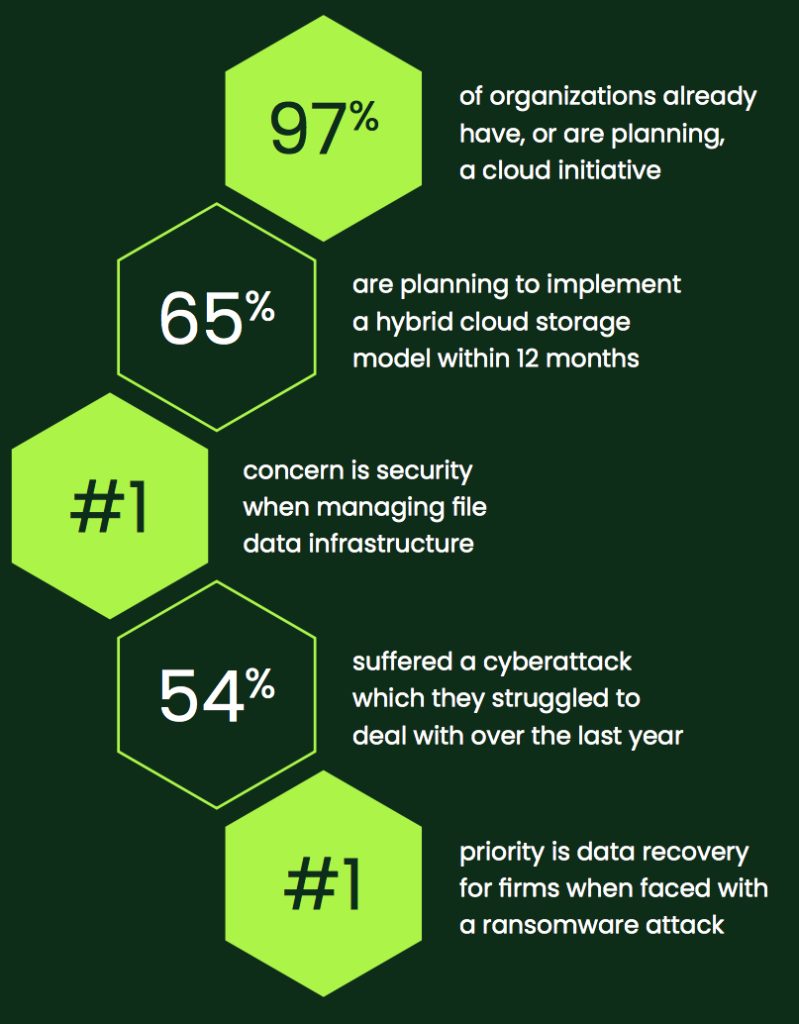
We surveyed more than a thousand purchasing decision makers in USA, UK, and DACH regions to understand how topics such as digital transformation, security, and AI are impacting data storage strategies in the hybrid era.
The survey uncovers some surprising findings…
• Despite the impact of high inflation, slow growth, and energy prices on budgets, data- related decisions are more likely to be influenced by security considerations than by cost-cutting.
• There’s a feeling of confidence when it comes to organizations’ ability to tackle cyberattacks, which doesn’t stack up against the reality. Three-quarters of organizations believe they’re well-defended despite more than half of them suffering cyberattacks resulting in anything from difficulty recovering data to ransom payments.
• The pace of change is striking: while less than 1/5 of firms currently have a hybrid cloud storage solution, nearly 2/3 are planning to implement one within the year.
• When it comes to AI, better management and visibility of data are seen as more valuable outcomes than lowering costs, automating work ows, or improving customer experience.
• Almost half of firms will prioritize AI investments over the next eighteen months, but in order to capitalize on this spend, firms are recognizing the need to become more data-centric.
• Our hope is that the findings in this report will help you benchmark your own organization’s progress on your hybrid cloud journey. Additionally, by uncovering prevailing attitudes and changing strategies, you’ll be better equipped to capitalize on one of your most valuable assets—data—while defending against potential pitfalls along the way.
Methodology
This survey was conducted among 1,150 purchasing decision makers, across USA, UK, and DACH region (Germany, Austria, Switzerland), in organizations with 500+ employees. The interviews were conducted online by Sapio Research in March and April 2024 using an email invitation and an online survey.
Section 1: The cloud context
The pace of cloud adoption and what’s triggering organizations to invest.
The majority have cloud baked into operational strategy
The benefits of the cloud, for everything from supporting business growth to reducing overhead, are generally acknowledged in today’s organizations. An overwhelming 97% of organizations either already have a cloud initiative or are in the planning stage.
Firms operating in the tech sector are far more likely to already have a cloud initiative in place (94%) than those working in the eld of marketing and sales (67%).
The software and IT services segments will both see double-digit growth in 2024, largely driven by cloud spending. Global spending on public cloud services is forecast to increase 20.4% in 2024. (3)
(3) Gartner press release, October 2023
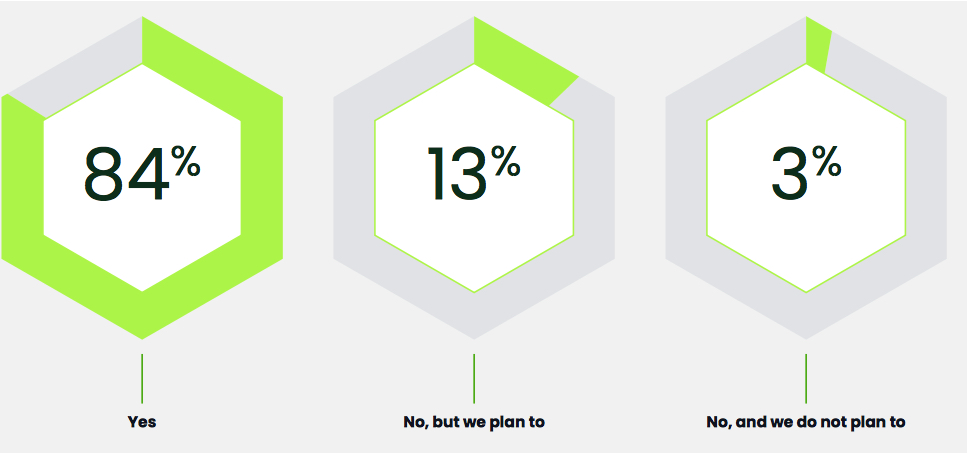
1,150 respondents were asked if they currently have a cloud initiative within their company.
Around half of organizations are investing in analytics and AI
Faced with what Gartner describes as the ‘explosive growth of enterprise data’ (4) it makes sense that the top cloud investment area over the next 18 months is data management and analytics (54%). Once processed and analyzed, companies’ data can be used to fuel AI initiatives – the 2nd-most popular investment area (48%), according to our survey respondents.
Organizations are also investing in the security of their cloud environments (45%) – prioritizing this above cost optimization (36%).
When it comes to investing in hybrid and multi-cloud strategies, we see a gulf between industry sectors. Only 18% of government organizations are prioritizing this area, compared to 39% of energy and utilities companies, and 47% of architecture, engineering, and construction (AEC) firms.
(4) Gartner, Top Trends in Enterprise Data Storage 2023, Analysts Chandra Mukhyala, Julia Palmer, Jeff Vogel, June 29, 2023
Cloud delivers on efficiency and security goals
59% of organizations are seeing their cloud initiatives delivering better data security and disaster recovery times.
Over half have also experienced improved application performance and feel more equipped to scale their operations.
These benefits are seen as even more important than the cost savings, which can be achieved through cloud initiatives.
Nearly 2/3 of organizations report that their cloud infrastructure strategy is helping to make their business more ef efficient. 62% say the cloud supports their goal of improving data security and business resilience.
Click to enlarge
Section 2: Trends in storage
The strategies organizations are adopting to deal with increasing volumes of data and data silos.
Organizations rush to adopt hybrid cloud storage within the year
While less than 1/5 of companies currently have a hybrid cloud storage model, a staggering 65% are planning to implement one within the next year.
Reliance on private cloud among 50% of companies
Despite its restrictions – in terms of cost, ongoing maintenance, and limits on scale – 50% of organizations are using private cloud to build their hybrid cloud storage solution.
This, in comparison to 41% taking a public cloud approach and 9% using both.
1,071* respondents were asked which of the options they are using to build their hybrid cloud storage solution.
Security tops list of le data challenges and concerns
Security concerns are the top reason firms haven’t moved file data into the cloud – and also the top challenge when managing file data.
45% of respondents say concerns around security keep them from moving file data to the cloud – significantly more are prevented by worries about costs, training, or complexity.
For infrastructure teams trying to manage files, perhaps across a patchwork of different of offices and systems, securing data and recovering it after an attack can be a headache. Our respondents ranked security concerns higher than anything else when managing file data infrastructure, including meeting compliance requirements and supporting inter-departmental collaboration.
Section 3: The impact of AI
Opportunities and roadblocks encountered on the AI implementation journey.
The IT department takes the lead on AI initiatives
Despite the explosion of interest in AI across the enterprise, primary decision – making authority is still most likely (44%) to sit within the IT department. Around 1/3 (32%) of respondents reported that their C-suite leads on AI decisions.
1,150 respondents were asked who holds the primary decision-making authority regarding AI-related initiatives within their organization.
Organizations target advanced data management through AI
Advanced data management techniques, such as data mining for improved analysis and forecasting, can provide firms with a competitive edge. Well over half (60%) of respondents are hoping AI will help them deploy advanced data management and achieve greater visibility. This goal is marginally more important than even cost savings (58%).
1,125* respondents were asked what outcomes or ROI they aim to achieve by adopting AI solutions.
Security concerns and skills shortages hamper AI rollout
The biggest roadblocks preventing organizations from either developing or implementing AI solutions are data privacy and security, and skills shortages. As we’ve seen elsewhere in this report, considerations around security are driving more decisions than cost issues, which in this instance sit at the bottom of the list of impediments.
1,125* respondents were asked what their biggest roadblocks are when it comes to developing or implementing AI solutions for the business.
Section 4: Storage and security
Top concerns in the battle to protect companies’ valuable assets from cybercriminals.
Disconnect between firms’ cybersecurity con dence and preparedness
Businesses WWt over $1 billion in ransomware payments last year, and 2024 is forecasted to be even worse (7).
In the face of statistics like these, it’s no surprise that we’ve seen security concerns preoccupy our respondents throughout this survey. But there’s a chasm between how prepared organizations feel in the face of cyberattacks, and the reality of their ability to protect against them.
Three quarters of respondents feel confident their organization can recover critical unstructured data and cope with a destructive cyberattack. And yet, over the past year, 54% suffered an attack which resulted in either a ransom payment, costly downtime, data loss, reputational damage, or issues recovering the data.
There is a risk that firms, mistakenly believing themselves to be well-prepared, neglect to make themselves so in reality.
Gaps in cybersecurity strategies
While almost half of organizations (49%) have taken steps to make sure their data is backed-up, immutable, and easily recoverable, 60% don’t have a well-rehearsed plan in place for if an attack occurs.
Less than half (47%) have tools capable of detecting attacks in real time, and more than half (53%) lack a dedicated security team overseeing their infrastructure.
Click to enlarge
1,150 respondents were asked measures their organization has taken to make their data more cyber resilient.
Healthcare organizations are far more likely to say their data is backed up and recoverable (60%) than firms operating in engineering (38%). In USA alone, healthcare security breaches have almost doubled in the past 5 years (8).
Responsibility for security spans departments
Just over 1./3 (31%) of companies say their infrastructure and operations (I&O) and security operations (SecOps) teams jointly own hybrid cloud storage security in the business; collaborating on decision making in this area. The figure rises to 41% in the manufacturing sector.
Ransomware fears spark data recovery concerns
It takes an average of 277 days for security teams to identify and contain a data breach, according to a 2023 report. (9) That’s over nine months of potential operational downtime and resources tied up in recovering or securing data.
When contemplating the prospect of a ransomware attack, organizations’ top concern is around data recovery, with 49% of respondents citing this issue.
1,150 respondents were asked what their organization’s primary concern is with a potential ransomware attack.
(9) https://www.techtarget.com/whatis/34-Cybersecurity-Statistics-to-Lose-Sleep-Over-in-2020
Key takeaways
Data is the foundation of business; but for many, data management isn’t a priority topic. It only hits the top of the agenda when access problems manifest themselves in critical ways.
For instance, when data can’t be accessed- to support collaboration or fuel innovation – or conversely when it’s accessed too easily, and security breaches occur. What’s clear from this survey of senior leaders is that those access issues are becoming acute. Relying on legacy, on-premises solutions isn’t an option in the era of hybrid cloud.
Security and backup are indivisible from storage
Half of organizations say their data is backed-up, immutable, and easily recoverable – which leaves a worrying 50% who risk data being lost or deleted.
Infrastructure teams who try to tackle security and backup separately to storage risk drowning in complexity, thanks to the exponential growth in unstructured data. And the problem will only grow more complicated, unless firms adopt hybrid cloud storage solutions with built-in security and backup.
Recovering quickly after breaches is critical
If the worst happens and a security breach occurs, the top concern for organizations is recovering their data. The rami cations of data loss and downtime spread far and wide in a business, so the quicker the problem can be resolved, the better. It’s one reason we designed a platform capable of recovering a million files within 1mn. Most solutions aren’t designed to recover such high volumes of data across multiple locations.
Key takeaways
Efficiency and collaboration must be baked in for growth
We all know working patterns have changed since the pandemic. Add to that the recent increase in M&A activity (up 41% in the last quarter of 2023) (11) and it’s easy to see why firms need to find ways to work efficiently across disparate locations. Improving business efficiency is the top business goal for organizations’ cloud infrastructure strategies. At Nasuni, we’ve developed our platform to support long-distance collaboration through virtual machines at the edge, synchronized with the cloud, which prevent accidental overwriting of changes.
AI-fueled innovation will rely on extracting value from data
AI offers a competitive advantage to those who manage to deploy it well. But 42% of firms say concerns around data security are hampering AI implementation. Cost-wise, relying on legacy storage in this scenario is a double-whammy: expensive to run and a brake on the increased profit margins offered by AI. Leading firms will securely break down data silos across on-premise, private, and public cloud with a single storage platform. Nasuni offers these forward-thinking firms, including the 1/3 (35%) lacking in-house AI expertise, support to build strong data foundations for successful AI strategies.








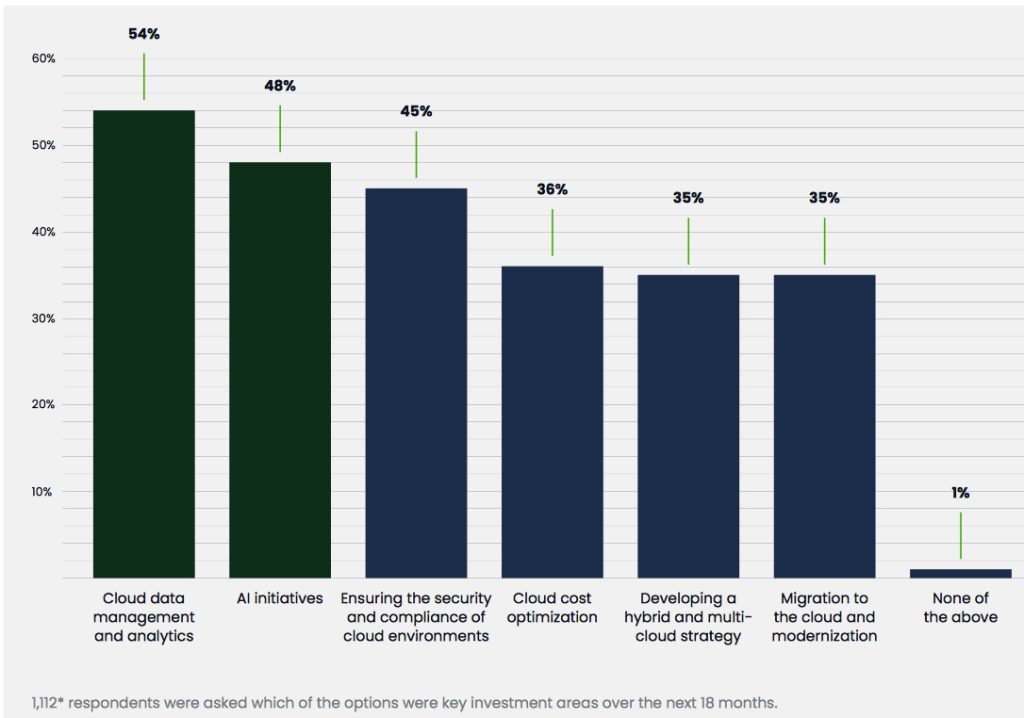
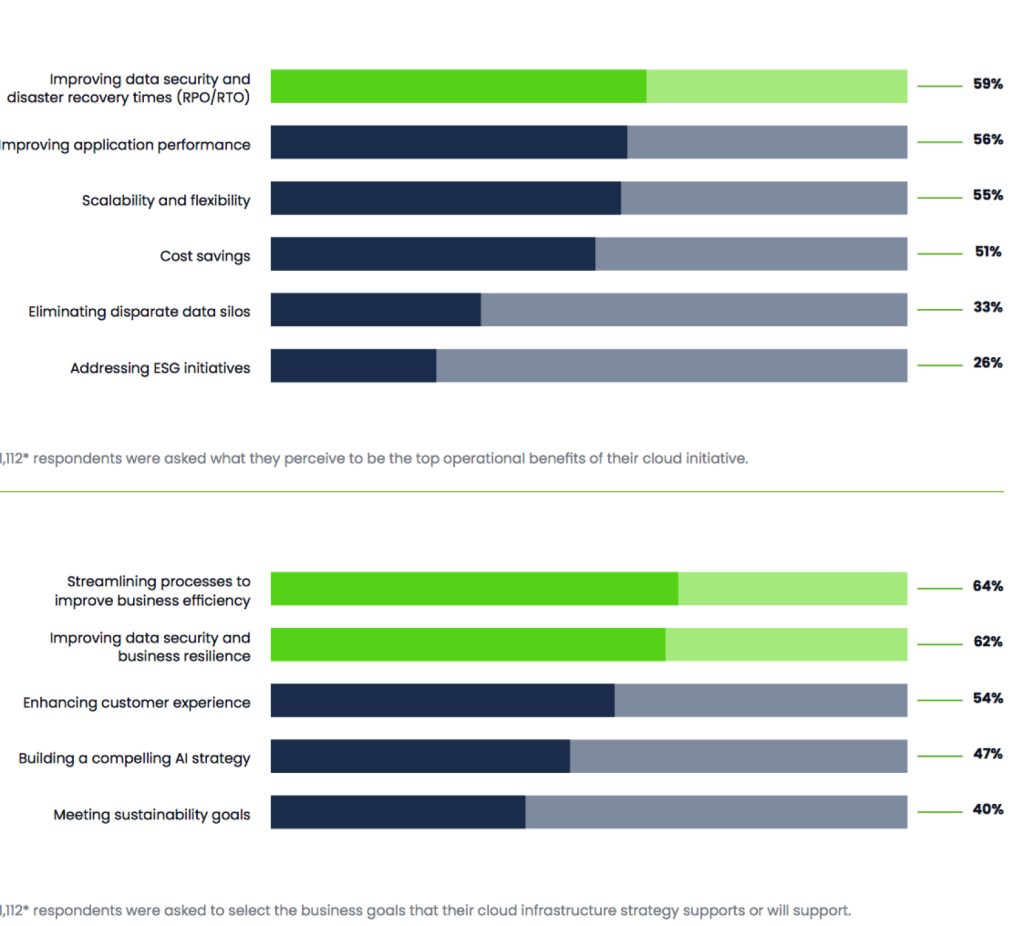
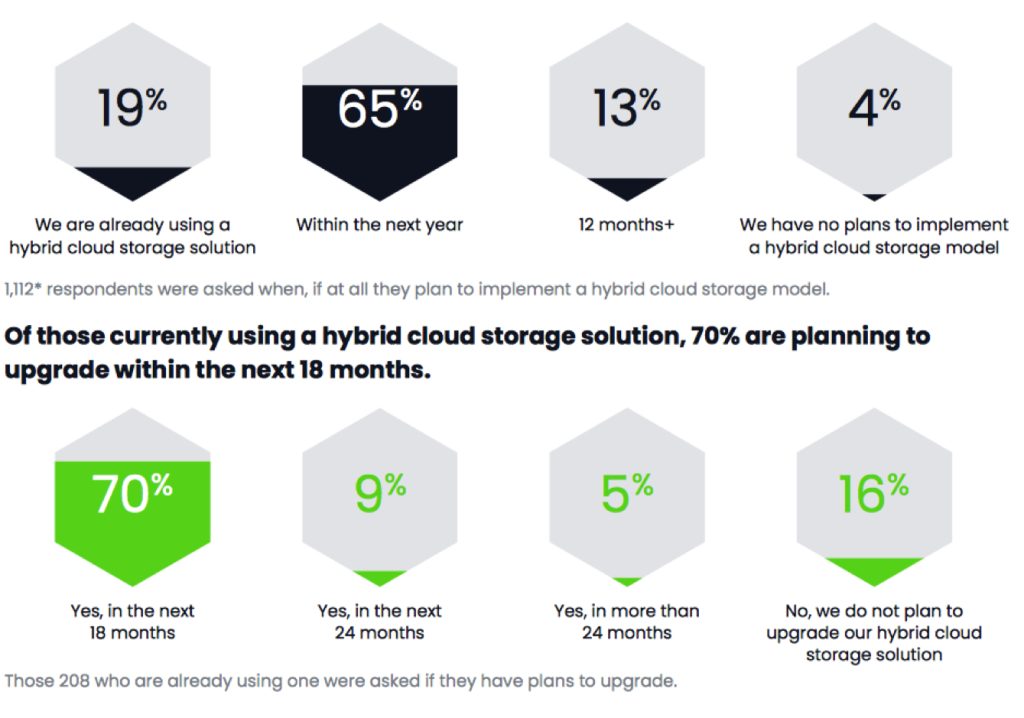
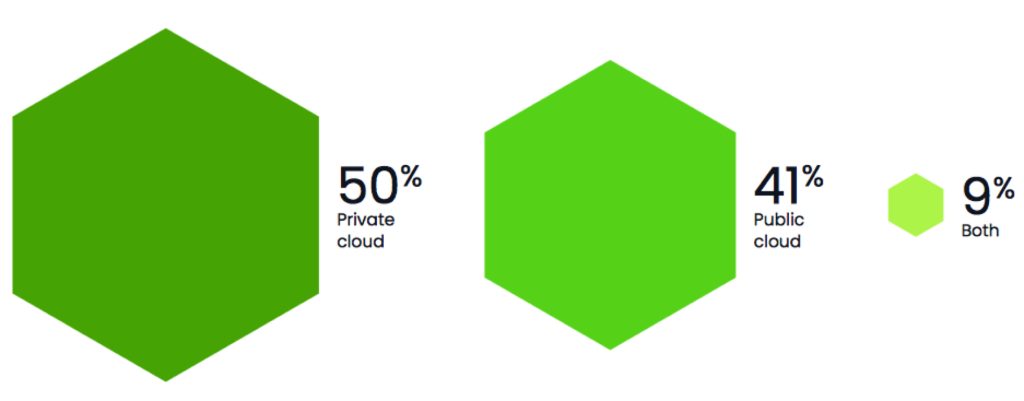
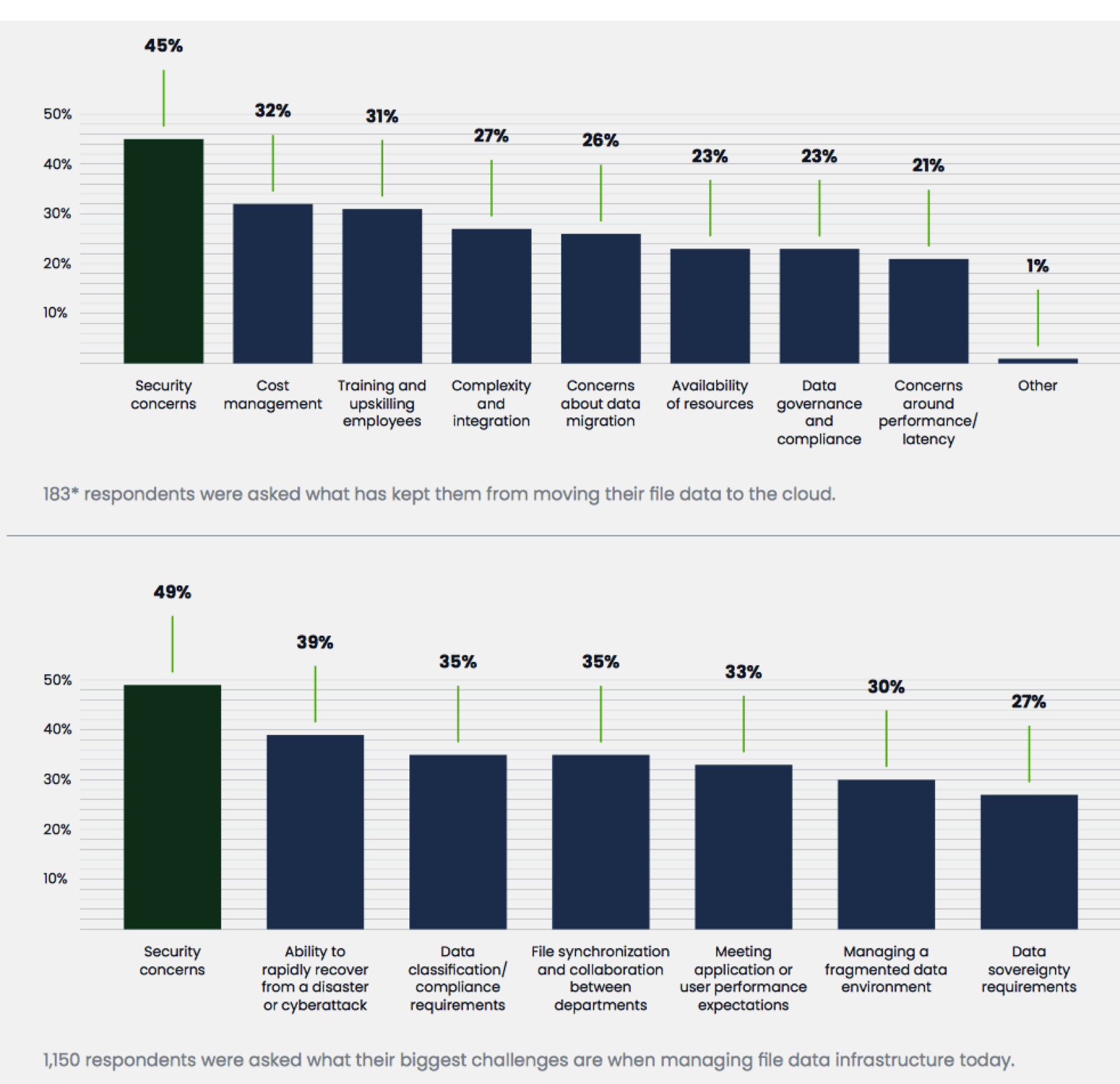
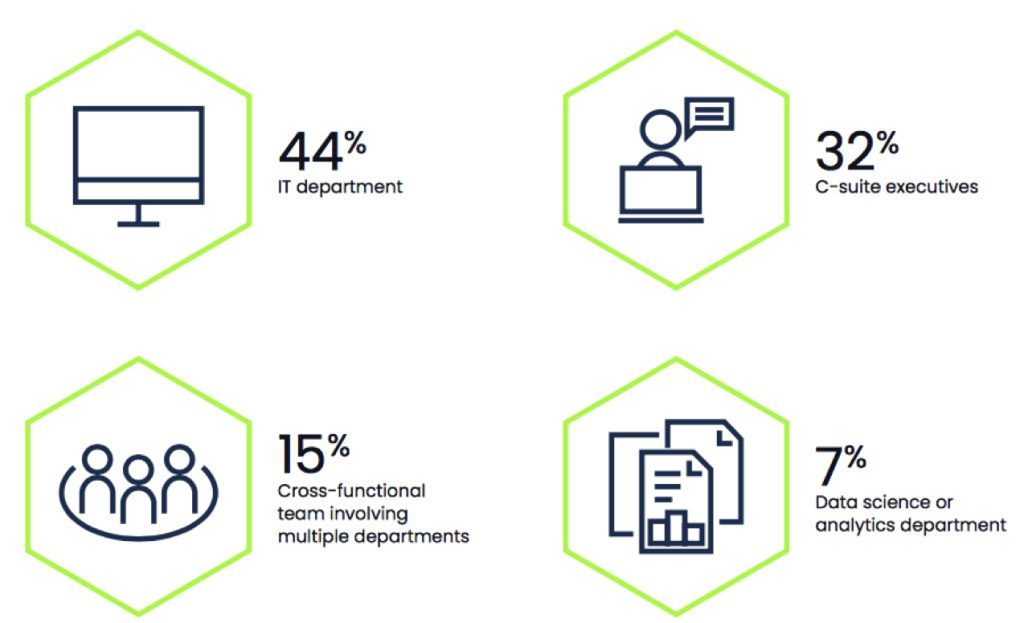
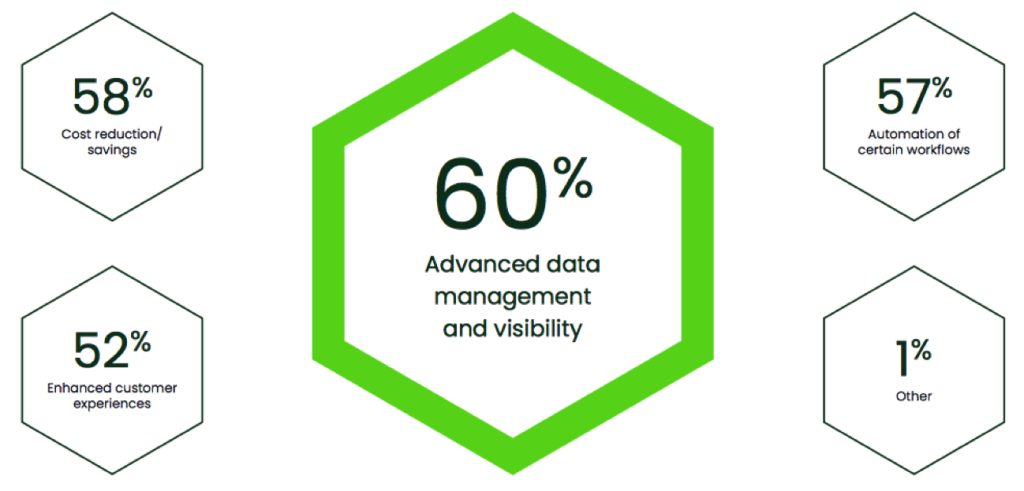
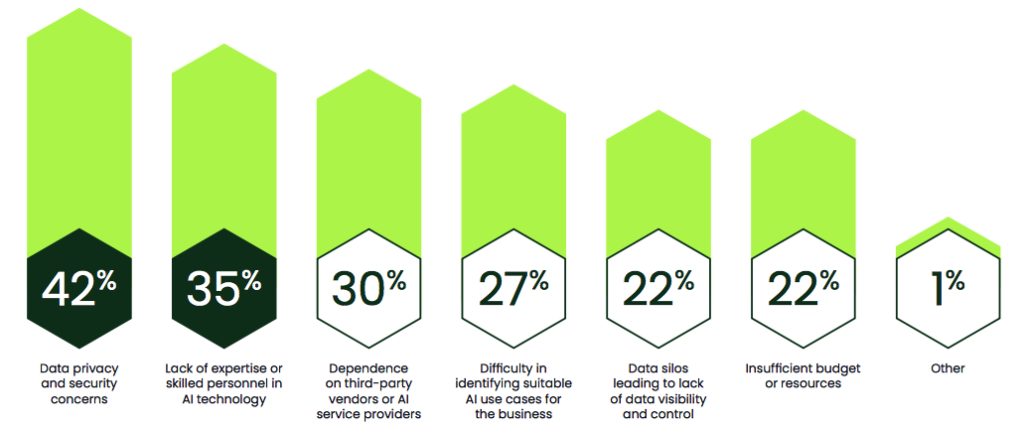
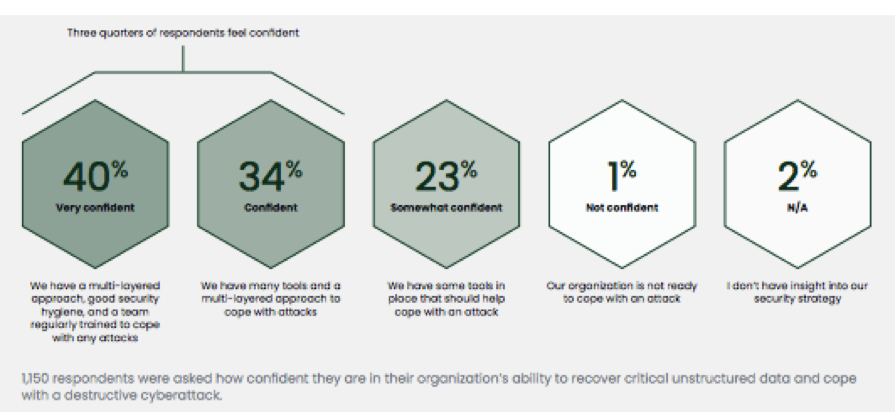
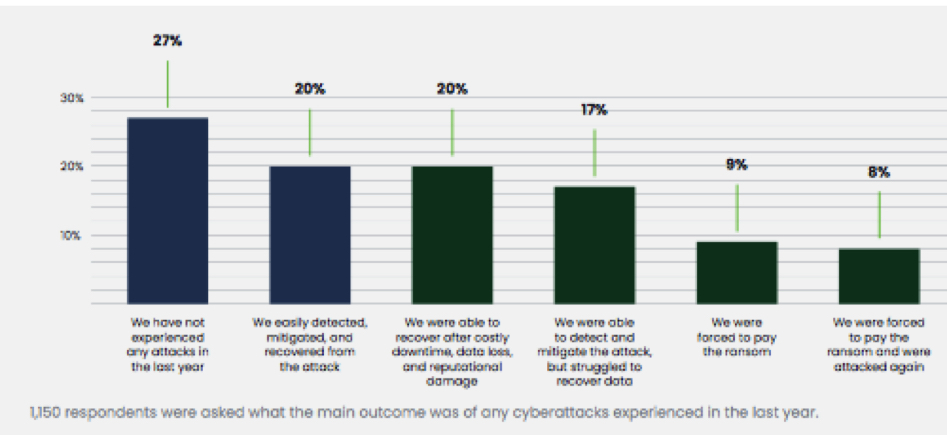

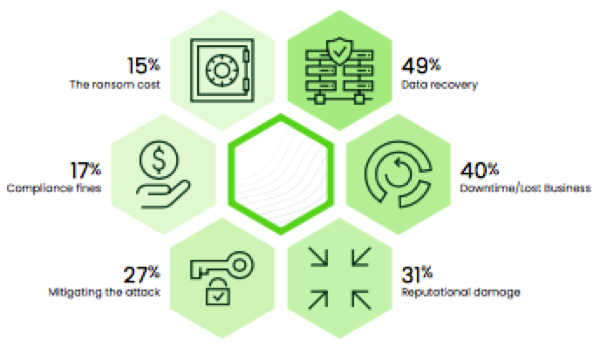






 Subscribe to our free daily newsletter
Subscribe to our free daily newsletter


